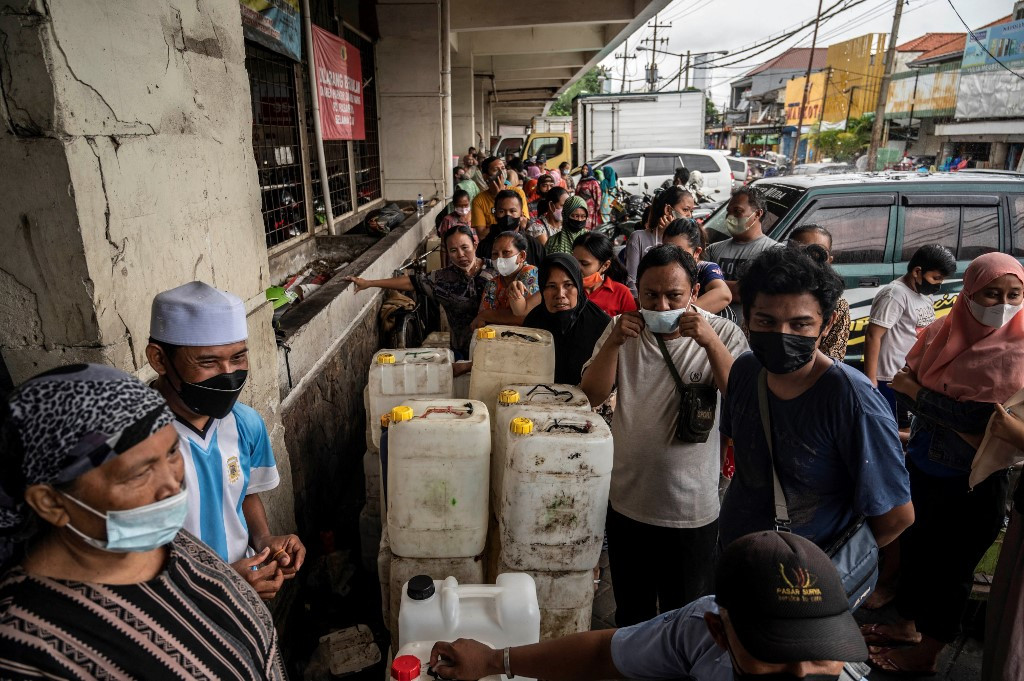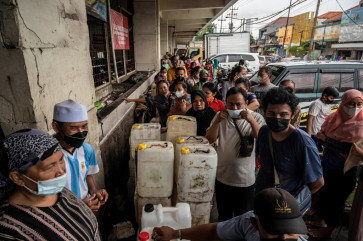Popular Reads
Top Results
Can't find what you're looking for?
View all search resultsPopular Reads
Top Results
Can't find what you're looking for?
View all search resultsThe imbroglio and fiasco within the cooking oil market
The biggest mistake was that when the Trade Ministry imposed price controls to protect consumers, it did not assign a special agency to manage and supervise the implementation of the DMO and DPO.
Change text size
Gift Premium Articles
to Anyone
T
he government’s decision in late January to cap the retail prices of palm oil-based cooking oil at Rp 14,000 (US$1) a liter for the highest-quality oil, and Rp 11,500-13,500 for the simple-packed oil, which were less than half of the free market prices, was politically lauded because the measure protected domestic consumers from the skyrocketing international prices.
Conceptually, the policy should have worked because Indonesia is the largest palm oil producer, with a national output of 56 million tons in 2021. Only about 9 million tons were needed to produce cooking oil for household consumption, another 9 million tons for industrial consumption (biodiesel, soap, oleo-chemicals) and the remaining 36 million tons were exported.
The Trade Ministry strengthened the policy with a regulation imposing a domestic market obligation (DMO) on producers amounting at least to 20 percent of their export volume at the mandatory domestic price obligation (DPO), which also was less than half of international prices.
But the draconian policy miserably failed to control prices at the fixed retail price ceilings, even after the Trade Ministry again raised the DMO in early March to 30 percent and supported the retail price ceilings with subsidies. But cooking oil, instead of inundating the market, disappeared from retailers’ shelves.
After the ministry abolished the DMO and DPO in the last week of March, the market was immediately glutted with packaged cooking oil of various brands, but bearing free-market price tags that were twice as high as the government fixed-retail price ceilings.
Apparently frustrated with the miserable failure of the market intervention policies made by his trade minister over the last three months and fed up with the ‘uncooperative’ attitude on the part of palm oil companies, President Joko Widodo took the bull by the horns on Friday and totally banned the export of refined, bleached and deodorized olein and cooking oil as from April 28 until further announcement.
What a policy-making mess. What went wrong?



















